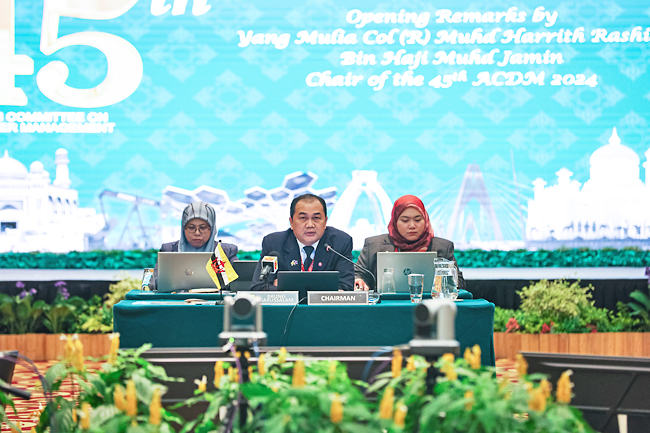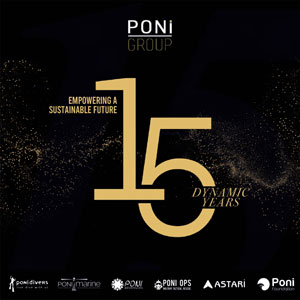Director of the National Disaster Management Centre Colonel (Rtd) Muhd Harrith Rashidi bin Haji Muhd Jamin, expressed sympathies to the governments and people of Laos, Myanmar, the Philippines, Thailand, and Vietnam, severely impacted by Tropical Cyclone Yagi.
He conveyed this during the 45th ASEAN Committee on Disaster Management (ACDM) meeting and related meetings yesterday.
Brunei Darussalam is hosting and chairing both the ACDM Meeting and the ASEAN Ministerial Meeting on Disaster Management (AMMDM), themed ‘Building a Resilient ASEAN through Inclusive and Sustainable Disaster Recovery’.
“We stand united with the families and communities who have endured immeasurable losses and with those bravely facing recovery challenges. This disaster reminds us of the destructive power of extreme weather events in our region,” he said.
Colonel (Rtd) Muhd Harrith also acknowledged Singapore’s crucial role in providing air transport to deliver essential relief supplies to the affected areas during emergency responses.
The theme of the meetings, ‘Building a Resilient ASEAN Through Inclusive and Sustainable Disaster Recovery’ resonates with the region’s shared experiences.
He highlighted that ASEAN’s history is marked by numerous natural disasters, underscoring the urgent need for integrated recovery and reconstruction efforts.
“The response to Tropical Cyclone Yagi showcases our region’s resilience and our collective commitment to overcoming challenges. Disasters disproportionately affect the most vulnerable, and as we strive for a more resilient ASEAN, recovery efforts must be vigorous, equitable, and inclusive. It is essential to ensure that women, children, the elderly, and people with disabilities are fully integrated into our recovery plans,” he added.
He also commended the ASEAN Coordinating Centre for Humanitarian Assistance on Disaster Management (AHA Centre) for its crucial role in coordinating ASEAN’s response efforts. “The AHA Centre has demonstrated the remarkable achievements possible through ASEAN’s collective action.
We must continue to support its mission and enhance its capacity to effectively address future crises.”
He reiterated that recovery efforts should not only address immediate needs but also lay the groundwork for a sustainable and resilient future. “Through strategical plans, we can implement lasting solutions that enhance preparedness for future challenges. Integrating disaster risk reduction into our development framework is key to building resilience, ensuring swift recovery, and fostering a more secure region,” he said. – James Kon








